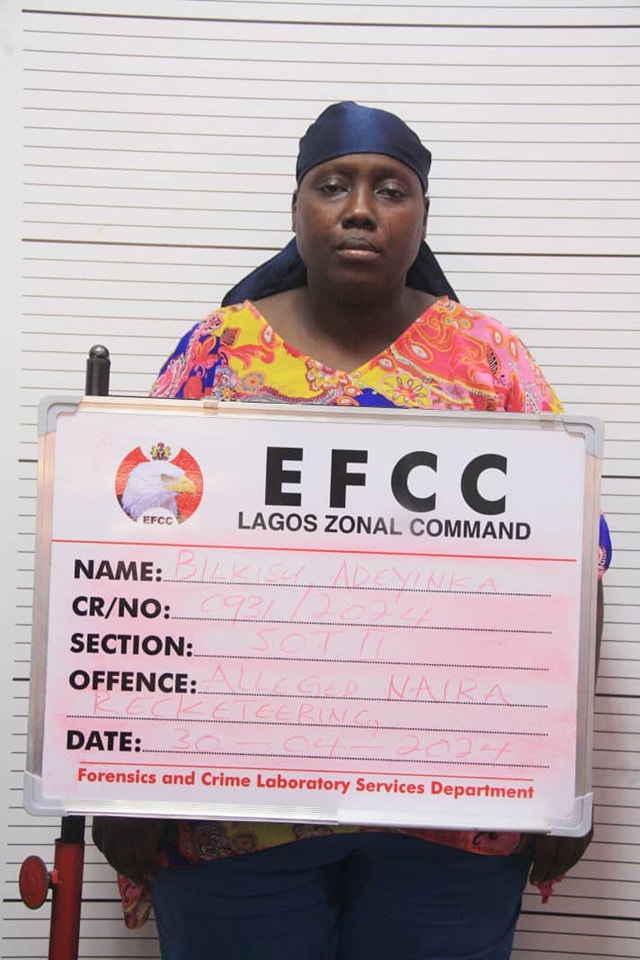On Wednesday, May 29, 2024, the Federal High Court in Ikoyi, Lagos, presided over by Justice Chukwujekwu Aneke, convicted Adeyinka Bilikis Gbadamosi for currency racketeering and sentenced her to six months in prison. Gbadamosi had been charged by the Economic and Financial Crimes Commission (EFCC) from their Lagos Zonal Command on a single count related to currency racketeering.

The charge stated that on April 27, 2024, in Lagos, Gbadamosi was caught illegally selling a total of N897,900. The notes involved included N200 notes with serial numbers 688101 and N500 notes with serial numbers 315501, all issued by the Central Bank of Nigeria. This activity violated Section 21(4) of the Central Bank of Nigeria (Establishment) Act, 2007.
When the charge was read to her in court, Gbadamosi admitted her guilt. Following her plea, the EFCC’s prosecution counsel, C.C. Okezie, requested that Olagunju Abdul Malik, an EFCC operative, present the facts of the case.
Abdul Malik informed the court that Gbadamosi was apprehended on April 27, 2024, while she was selling Naira notes at the 10 Degree Event Centre on Billings Way in Ikeja, Lagos. Her arrest was based on credible intelligence received by the EFCC. At the time of her arrest, N897,900 was recovered from her.
“Upon arrest, she was cautioned and she provided statements willingly. In her statement, she admitted to engaging in currency racketeering and the illegal selling of Naira notes,” Abdul Malik explained.
Following this, Okezie moved to submit Gbadamosi’s extrajudicial statements and the confiscated money as evidence. Justice Aneke accepted these items as exhibits and proceeded to convict Gbadamosi based on the evidence and her admission of guilt.
Gbadamosi’s lawyer, A.A. Olawipo, appealed to the court to consider a non-custodial sentence or a fine instead of imprisonment. Justice Aneke, after considering the appeal, sentenced Gbadamosi to six months in prison. However, he offered her an option to pay a fine of N50,000 instead of serving the prison term. Additionally, the judge ordered that the N897,900 recovered from her be forfeited to the Federal Government of Nigeria.
This case underscores the serious stance the Nigerian judiciary and the EFCC are taking against currency racketeering, which undermines the financial stability and regulations set by the Central Bank of Nigeria. By apprehending and prosecuting individuals involved in such illegal activities, the authorities aim to maintain the integrity of the national currency and deter others from engaging in similar practices. Gbadamosi’s case serves as a reminder of the legal repercussions of currency racketeering and highlights the ongoing efforts to enforce financial laws in Nigeria.




